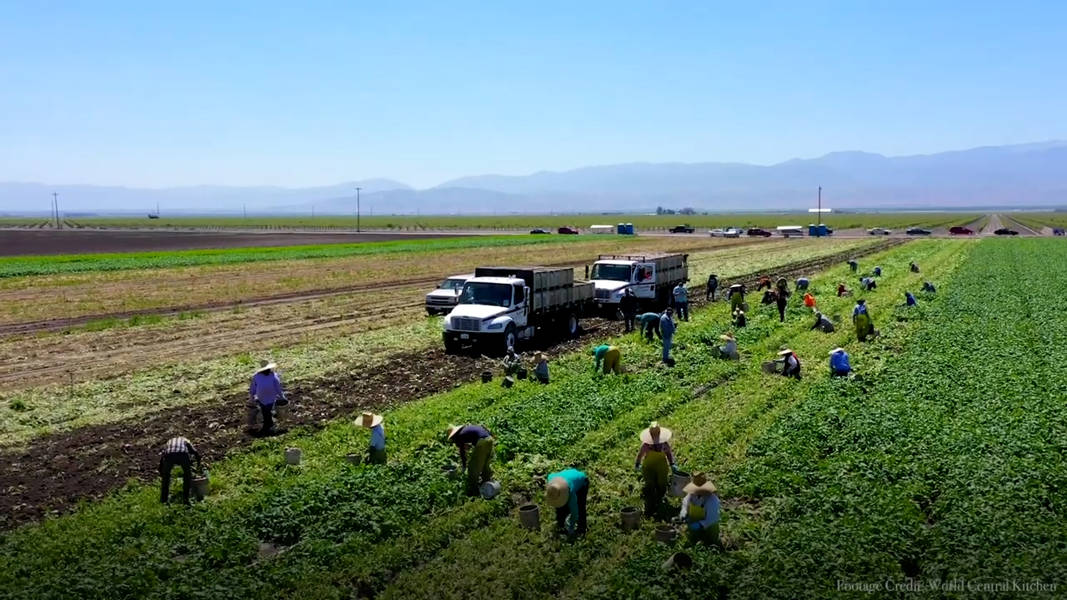
SNF Pandemic Relief Fights Food Insecurity from Milan to San Antonio
The Stavros Niarchos Foundation’s (SNF) $100 million global COVID-19 initiative has made working to address food insecurity both an urgent priority from the beginning and an ongoing long-term focus. SNF’s grantmaking has considered not just on whether food is available, but how it’s made available, focusing on the livelihoods of the people who produce the food as well as the welfare of those who eat it.
At the Street Vendor Project in New York City, this means getting street food vendors, the smallest of the small businesses, back to work feeding their neighbors in Brooklyn and the Bronx with culturally sensitive meals. At World Central Kitchen, it means employing local restaurants to provide tens of thousands of meals to rural farmworker communities in Central California, helping fight food insecurity while guaranteeing income for small restaurant businesses and their employees. Rethink Food follows a similar model for mainstay community restaurants in New York City neighborhoods hit hard by the pandemic.
In Lisbon, CRESCER’s social venture restaurant, which employs people who have experienced homelessness, reoriented under the pandemic to deliver meals to people on the streets. The Stanley M. Isaacs Neighborhood Center on Manhattan’s Upper East Side runs a community kitchen that employs recent graduates of its workforce development program as well as restaurant workers who have lost jobs.
SNF partners with organizations tapping into and reinforcing established foodways. In Tanzania, this means supporting small-scale maize millers in continuing to produce fortified flour to combat micronutrient malnutrition through a grant to Project Healthy Children. In Greece, this means supporting Boroume in distributing vouchers to ten thousand families across the country so that they can continue to access food at their local supermarkets.
A number of SNF grants in the pandemic relief initiative have lent support to organizations with wide regional views that allow them to identify and meet the greatest needs they see. At the broadest scale, Acción contra el Hambre is providing food assistance and other essentials to people in Guatemala, Nicaragua, Honduras, El Salvador, Colombia, Venezuela, and Peru. At the country level, organizations like the Spanish Red Cross, the Central Union of Greek Municipalities, and Feeding America are coordinating nationwide responses. Meanwhile, at the regional level, organizations like the San Antonio Food Bank, the Community Foundation for Southeast Michigan, and Progetto Arca, which is delivering food aid in greater Milan, Naples, and Rome, can look comprehensively at how to best address needs in the areas where they work.
Food insecurity is a global issue, one that has become more entrenched over the last year. Addressing it requires a global response, but one built with local food producers, local food systems, and local needs at its heart. For SNF, helping make sure people around the world have food on the table will continue to be a key priority of its global relief initiative.